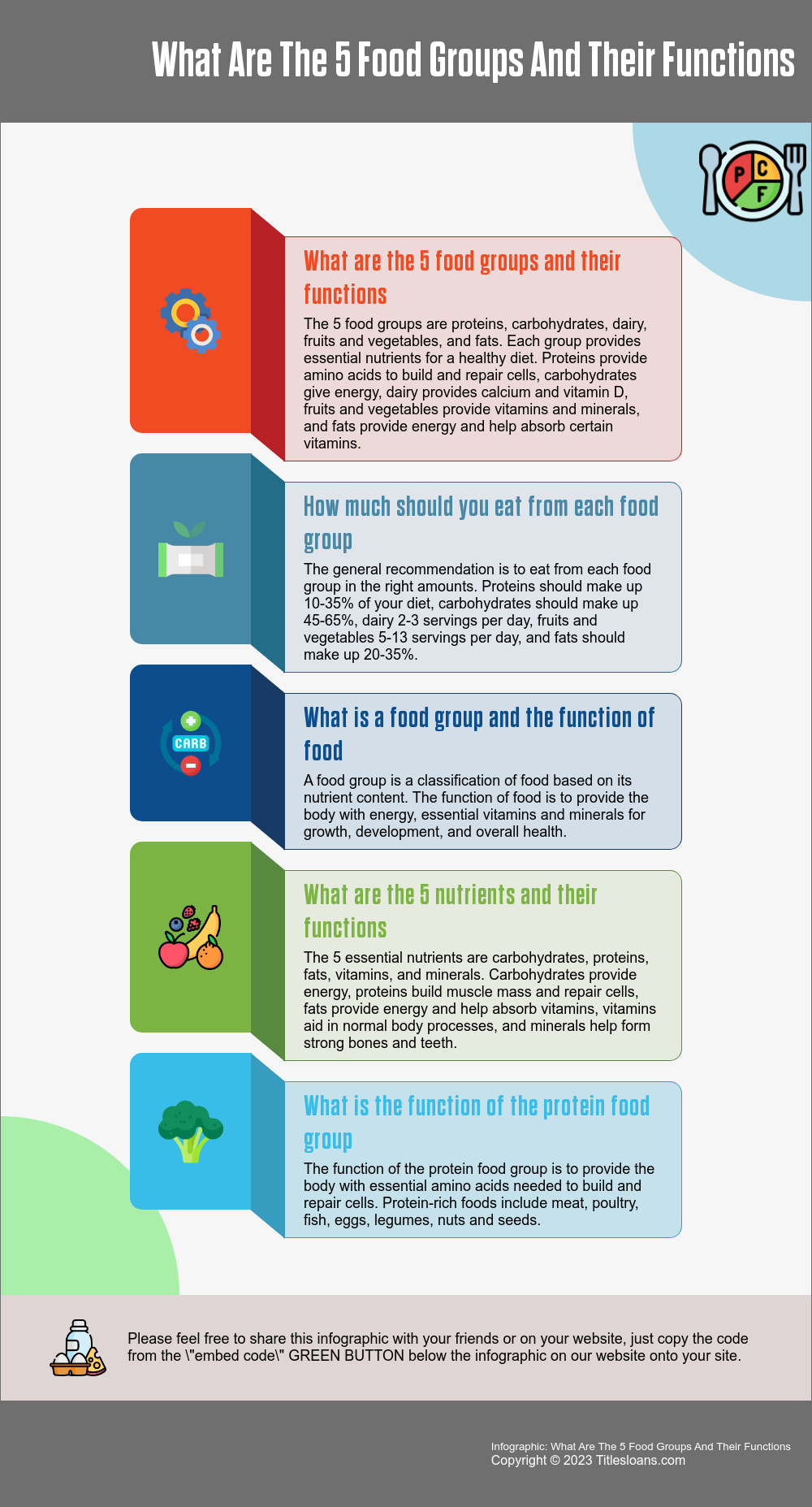What are the 5 food groups and their functions
The 5 food groups are proteins, carbohydrates, dairy, fruits and vegetables, and fats. Each group provides essential nutrients for a healthy diet. Proteins provide amino acids to build and repair cells, carbohydrates give energy, dairy provides calcium and vitamin D, fruits and vegetables provide vitamins and minerals, and fats provide energy and help absorb certain vitamins.
How much should you eat from each food group
The general recommendation is to eat from each food group in the right amounts. Proteins should make up 10-35% of your diet, carbohydrates should make up 45-65%, dairy 2-3 servings per day, fruits and vegetables 5-13 servings per day, and fats should make up 20-35%.
What is a food group and the function of food
A food group is a classification of food based on its nutrient content. The function of food is to provide the body with energy, essential vitamins and minerals for growth, development, and overall health.
What are the 5 nutrients and their functions
The 5 essential nutrients are carbohydrates, proteins, fats, vitamins, and minerals. Carbohydrates provide energy, proteins build muscle mass and repair cells, fats provide energy and help absorb vitamins, vitamins aid in normal body processes, and minerals help form strong bones and teeth.
What is the function of the protein food group
The function of the protein food group is to provide the body with essential amino acids needed to build and repair cells. Protein-rich foods include meat, poultry, fish, eggs, legumes, nuts and seeds.
